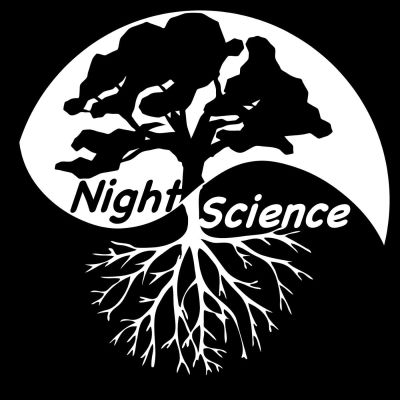Where do ideas come from? In each episode, scientists Itai Yanai and Martin Lercher explore science's creative side with a leading colleague. New episodes come out every second Monday.
http://night-science.org
Gesamtlänge aller Episoden: 1 day 12 hours 30 minutes
episode 9: Uri Alon and our internal tuning fork
Uri Alon, a professor at the Weizmann Institute of Science in Israel, is best known for his contributions to systems biology. But Uri is also famous for his very joyful and playful attitude to science, which is memorable for anyone who’s ever heard him speak (or sing). Uri’s research is exceptionally broad in terms of the fields he covers, which is one reason why he is one of today’s most cited researchers...
episode 8: Agnel Sfeir on science as an obsession
Agnel Sfeir is a leading scientist in the Memorial Sloan Kettering Cancer Center in New York, who studies fundamental aspects of the biology of the cell. Agnel revels in asking seemingly simple questions that get to the heart of the unknown in biology. In this conversation, she told us how she immerses herself in the project together with her team, and learns how to mentor each person depending on how they like to think...
episode 7: Nikolaus Rajewsky on how to think like a bacterium
Nikolaus Rajewsky is the founding director of the Berlin Institute for Medical Systems Biology. After studying Physics, he moved into systems biology, studying the role of RNA in gene regulation. In this episode, Nikolaus talks about how his training as a physicist enlightens his approach to biological problems...
episode 6: Bill Martin on paying attention
Professor Bill Martin from Düsseldorf University is a leading evolutionary biologist, who has made fundamental contributions to our understanding of the origins of eukaryotes, the cell nucleus, and life itself. In this episode, Bill reveals how he chooses a research question and boosts his creativity. He also discusses the pitfalls of exploratory data analysis and the perils of working in highly crowded fields...
episode 5: Steven Strogatz on ruthless simplification
Steven Strogatz, one of the world’s foremost applied mathematicians, is a Professor at Cornell University. While biologists have evolution as a guiding principle, mathematicians have beauty, economy, and connectivity, as Steve tells us. He explains how he ruthlessly simplifies a problem to the point where - while it still seems impossible - it is down to its bare essentials. That’s when he attacks...
episode 4: Samantha Morris on building your own creative lineage
Professor Sam Morris from Washington University in St. Louis is elucidating how cells make developmental decisions as they navigate the space of cell identity. She had a rocky start in science, but falling in love with her projects led her to stick it out. Luckily so: she now runs a highly successful and highly creative lab...
episode 3: Ruth Lehmann and the Saturday afternoon experiment
How do world-class scientists make discoveries? “Observing and listening” says Professor Ruth Lehmann, the Director of MIT’s Whitehead Institute. Ruth’s pioneering research focuses on germ cells and embryogenesis, and in this episode we were very fortunate to sit down with her to discuss her creative process, which she likens to the opening of a window...
episode 2: Tom McLeish on the poetry of science
How is science like art? In this episode, we talk about the similarities between the creative processes of science and art with Tom McLeish, a Fellow of the Royal Society and Professor of Natural Philosophy in the Dept. of Physics at the University of York in England. Tom has written a fascinating book entitled “The poetry and music of science”, where he discusses how we have everything to gain by better explaining the creative scientific process...
episode 1: Ben Lehner on how to start your own scientific field
Ben Lehner is a Professor and Coordinator of the Systems Biology Programme at the Centre for Genomic Regulation in Barcelona. In this episode, Ben talks with us about how careerism is bad for science. He describes how he avoids being limited to the confines of individual fields and disciplines and his strategy for dealing with the unpredictability of science. He also discusses with us how to not get attached to any particular idea in order to really make progress...
episode 9: Yana Bromberg on getting creative with machine learning
Yana Bromberg is a Professor at Rutgers, where she teaches computers to speak the functional language of biological sequences. In this episode, she talks with Itai and Martin about the amazing creativity of machine learning, the search for weirdness, and her superpower of translating things from one field to another.
Her work is being recognized from virtually all sides, including NASA and NIH...
